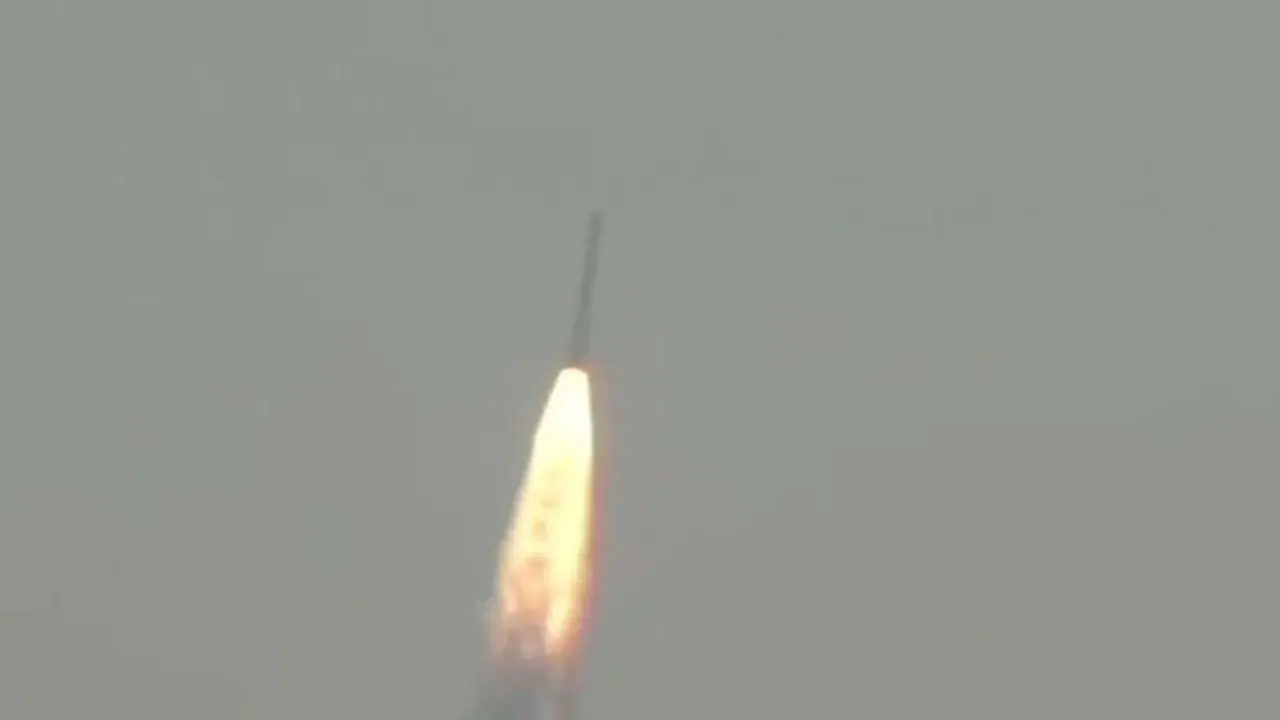ISRO's PSLV-C45's launch came six days after India test-fired an anti-satellite (ASAT) missile in the Mission Shakti operation.
Nellore: The Indian Space Research Organisation launched the electronic intelligence satellite EMISAT along with 29 nano satellites of global customers at 9.30 am from Satish Dhawan Space Centre (SDSC) SHAR, Sriharikota on Monday.
The 29 foreign satellites are from Lithuania, Spain, Switzerland and the US apart from three other probe instruments. This is the ISRO’s first attempt to launch satellites in three different orbits.
With this, India seeks to give birth to a new surveillance satellite with a special mission of the Polar Satellite Launch Vehicle (PSLV C-45) that has many firsts.
Today's launch comes six days after India test-fired an anti-satellite (ASAT) missile in the Mission Shakti operation.
Also read: Twitter rolls on floor laughing as Congress fans credit Nehru for Mission Shakti’s ASAT success
The PSLV-C45, according to reports, will inject EMISAT in a 753 km orbit and the foreign satellites in a 505 km orbit. It is then expected to move to the third orbit to conduct experiments.
The rocket will then move to a 485 km orbit and turn into an orbital platform powered by solar panels so that the three scientific instruments, it will be carrying, can conduct experiments for the next six months. This will be the fourth and last stage, also called PS4, of the rocket
What is EMISAT
EMISAT is an advanced electronic intelligence satellite, which is based on ISRO’s Indian Mini Satellite -2 (IMS-2) bus platform.
Weighing about 436 kg, the satellite will be measuring the electromagnetic spectrum.
How will PS4 be beneficial?
The PS4 orbital platform is expected to provide a microgravity environment for research organisations and academic institutes to perform experiments, according to ISRO.
In this mission, the PS4 will be hosting three payloads, namely, Automatic Identification System (AIS) from ISRO, Automatic Packet Repeating System (APRS) from AMSAT (Radio Amateur Satellite Corporation), India and Advanced Retarding Potential Analyzer for Ionospheric Studies (ARIS) from Indian Institute of Space Science and technology (IIST).
